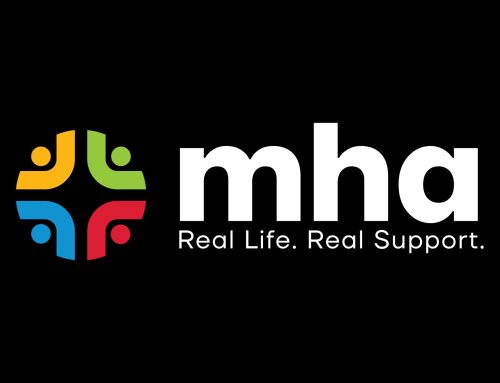Need to get more mileage out of your paycheck these days with prices on the rise? Gordon Oliver, Director of Business Development at Cambridge Credit Counseling, offers some timely advice in this question-and-answer with MHA on how a budget can help. The non-profit’s website, cambridgecredit.org, offers a range of budgeting and other information, including worksheets (https://www.cambridge-credit.org/creating-a-budget.html) that can be downloaded for free to help better manage your income, expenses and even put aside savings for that rainy day.
Is budgeting a negative concept for some people?
People get very comfortable living paycheck to paycheck, thinking they have things under control. It can be overwhelming once they put things on paper and try to follow a system, but following a budget, or spending plan, is the first step toward achieving financial goals. You must know all of the income that is coming into your household and what income is going out and why.
How does one tackle budgeting for the first time?
Gather as many receipts and statements as you can, tracking your spending for 2-3 months to make sure you don’t miss any occasional expenses, like clothing. Your goal is accuracy – you don’t need to make reductions right away. You’re just trying to create a true picture of where you stand. After you’re confident your budget reflects your actual income and expenses, you can list your priorities. That’s the best way to identify where you can make reductions.
Are there any techniques that you suggest for getting started?
Budgeting needs are different for all families and there are any number of approaches you can choose from. The 50-20-30 rule is a money management technique that divides money into three categories – 50% for essentials, 20% for savings and 30% for everything else. There is the envelope method where everything, from rent to groceries to a vacation fund, goes into its own envelope. There is the 80/20% rule which is 20% for savings and 80% for everything else. We try to be more specific with an actual budget because the more data you have to manage income and expenses, the better the decisions you’ll make. The most important thing is just to get started, whatever method you choose.
How do you advise people to prepare for a month where expenses unexpectedly exceed income?
The best way to prepare for unexpected expenses is to create an emergency fund. You have a lot of things you may be saving for, such as a home down payment, a child’s tuition, etc., but a general emergency fund is critical. You need to have a corner of your savings account that isn’t dedicated to any single purpose. It exists solely to help you through an emergency. You don’t really want to rely on credit cards in an emergency.
What are some of the biggest mistakes people make when it comes to keeping track of their income and keeping track of their bills?
The biggest mistake is failing to track expenses during different times of the year. Expenses often change with the seasons. Think of the way your utility bills fluctuate from winter to summer. There are times of the year when you may buy more gifts, and times when you buy more clothes. Taking a summer or winter vacation impacts your budget during those months. Tracking spending at different times of the year will provide a more accurate picture of your spending.
It is also important to identify your actual “needs” and separate those from your “wants.” Needs include a roof over your head. This means money for rent or a mortgage and then for the utility bills that come with housing. Next is generally groceries, as you have to feed yourself and your family. Costs have risen around groceries. If you had a budget a year ago and you had a number for groceries, it is highly likely that number has gone up or you need to look at your shopping habits and find a way to pull back to make meals be less expensive and last longer. Transportation, a car, gas, insurance, is also a need because typically if you don’t have transportation, you can’t get to work.
There are all kinds of things that come in the “wants” category that you have to be very attentive to, from cable TV to entertainment activities to the latest cellphone. Cutbacks usually start with the wants when things start to get tight.
How many credit cards should people have?
In a perfect world I’d recommend having multiple cards with zero balances. This does not mean that if you only have one card, go and apply for two or three more. The more lines of credit you have that are in good standing for a long period of time, the better your credit and your credit score.
I usually recommend having at least two cards: one for day-to-day purchases that offer good rewards that you will actually use. Because you’ll be using that card extensively, you should also dedicate yourself to paying off that account in full every month. Your second card should be held back for emergency use only. You should only use it according to its minimum use policy, which you’ll see in your contract. (You may be required to use the card once every 90 days, etc.)
Is there any estimate of how much people over a lifetime can save if they budget?
The golden rule has always been to save 10% of your gross pay, that is, before deductions or taxes. So, if you make $1,000 before deductions and take $100 out and put it away all during your life, you will be OK in the long run. That won’t be enough to retire on, but it’s a start. Why won’t it be enough? That’s because experts are fairly unanimous in suggesting that you’ll need 70% of what you earned in your average working year for every year you’ll be retired.
For example, if I earned $50,000 per year, on average, during my working years, I’m going to need $35,000 per year for every year I’ll be retired.
So, if I saved 10% of my $50k income every year I worked, let’s say for 40 years, I would have set aside $5,000 per year, and, when I retired, I’d have a nest egg of $200,000. Nice! But how long would that last me if I need 70% of my working income per year of retirement? About 6 years. That means I need to invest some of my money in other types of saving plans, such as a 401(k), IRA or Roth IRA, so that I can afford to live beyond those six years. You don’t need to be a financial wizard to participate in any of these types of plans. You just need to do it.
What feedback to you hear from folks who start to actually follow a budget for the first time?
RELIEF! They’re no longer operating blindly, because they know exactly where their money is going, and they know how and when they’re going to reach their goals. It’s exhausting to live paycheck to paycheck, but it’s even worse when you don’t know whether you’re going to be able to afford the things you want to achieve in life. Creating a budget, or spending plan, eliminates that stress.
To connect with and to learn more about Cambridge Credit Counseling, please email Gordon Oliver goliver@cambridgecredit.org





